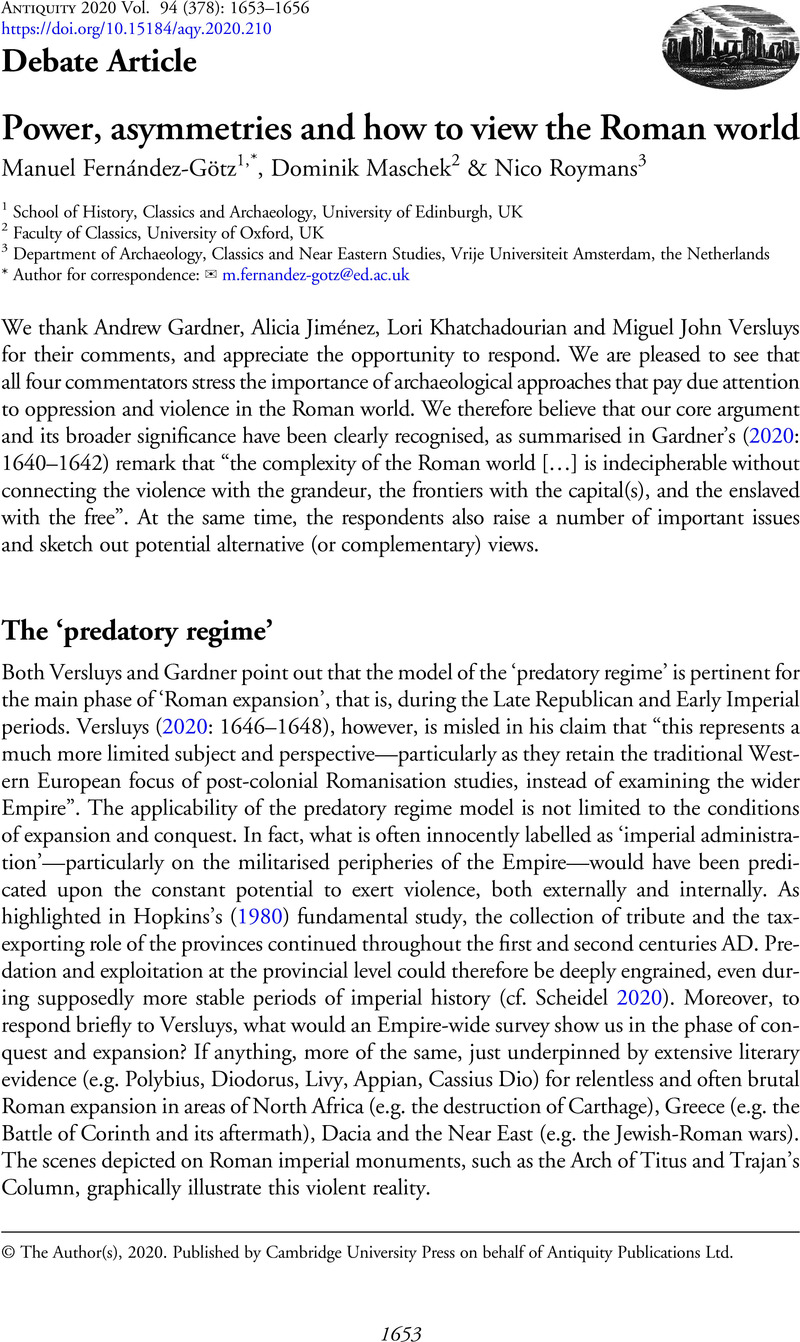Crossref Citations
This article has been cited by the following publications. This list is generated based on data provided by Crossref.
Baryshinkov, Anton
2022.
New Threats, Old Challenges: Understanding Roman Imperialism in Post-Soviet Russia.
Theoretical Roman Archaeology Journal,
Vol. 5,
Issue. 1,
Nión-Álvarez, Samuel
2023.
Facing discordant records and cultural hegemony in archaeological studies: an approach from Galician rural funerary epigraphy (1850–1940).
Post-Medieval Archaeology,
Vol. 57,
Issue. 3,
p.
409.
Burrell, Barbara
2024.
A Companion to the Archaeology of the Roman Empire.
p.
1.
Moreno-Padilla, María Isabel
Gutiérrez-Rodríguez, Mario
Molinos-Molinos, Manuel
Fernández-Casado, Rosa
and
de Gea Guillén, Ginés
2025.
Dealing with the archaeological invisibility of the Iberian mints: A technological and contextual analysis of the first stone mould for blank coin production found in Hispania.
Journal of Archaeological Science: Reports,
Vol. 63,
Issue. ,
p.
105083.



